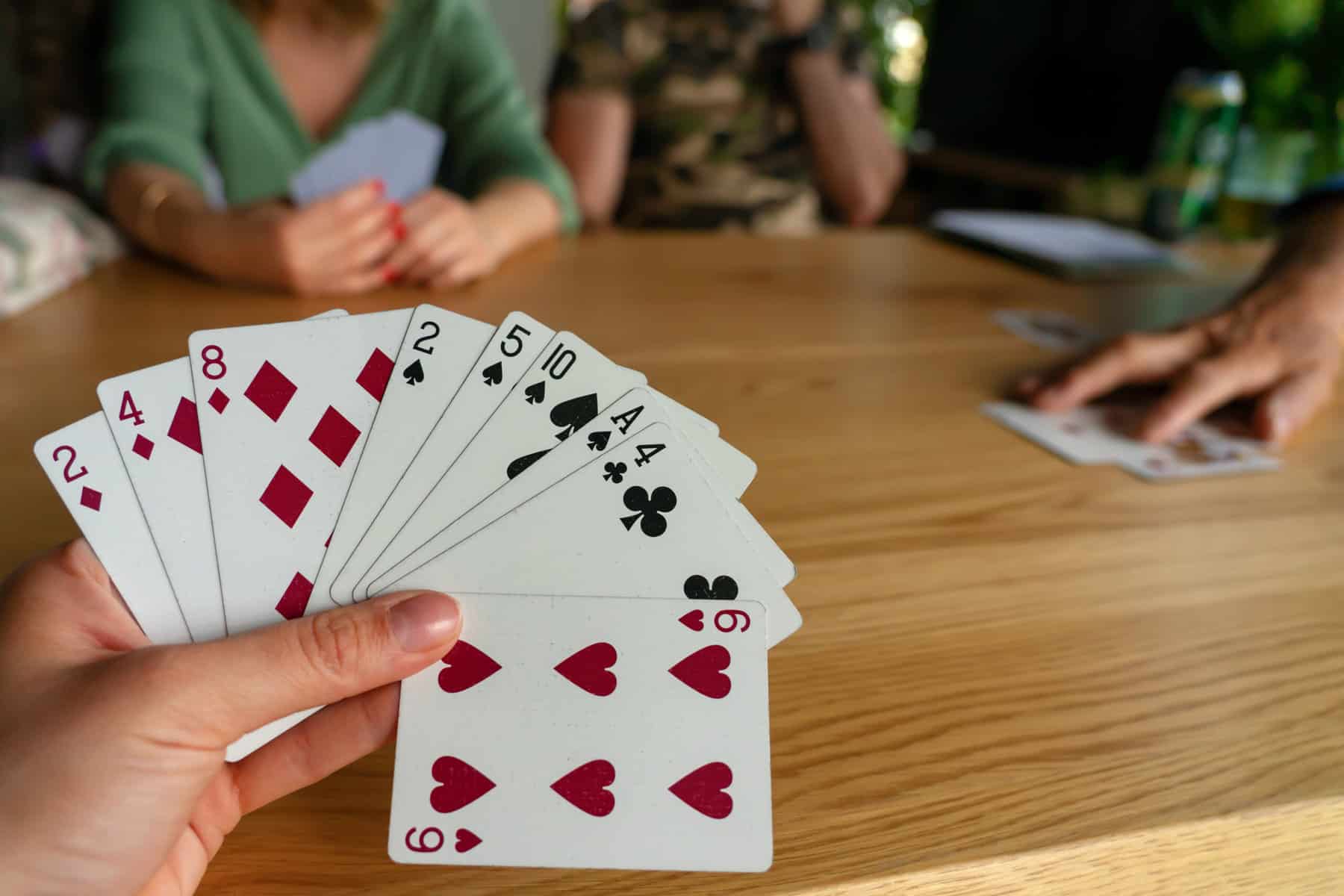The Ultimate Guide to Card Playing Games for Parents and Kids
Hello there, amazing parents! Are you looking for a way to turn off the screens and have some good old fashioned fun with your little ones? Well, shuffle the deck and gather around, because card playing games are not just entertaining; they can be incredibly educational too! We’ve put together the ultimate guide to help you make the most out of this timeless activity.
Why Card Games are Fantastic for Families
Card games have been a staple of family fun for centuries. They are a low-cost, highly portable form of entertainment that can help your kids learn important social and cognitive skills such as strategic thinking, math, and memory. Plus, they’re perfect for family bonding and are a great way to encourage healthy, competitive play.
Getting Started with Card Games
Before we dive into the nitty-gritty of specific games, let’s go over a few basics to ensure a smooth start:
- Choosing the Right Deck: Most card games are played with a standard 52-card deck. However, some games may require special decks or just a subset of the cards. Make sure you have the right deck on hand for the game you choose.
- Understanding the Rules: Every card game has its own set of rules. Do a quick read-through before explaining them to your kids, keeping the explanations simple and engaging.
- Setting Up Play Area: Find a quiet and comfortable area with a flat surface. A dining table or a floor mat can serve as a good card-playing spot.
Card Games to Start with Younger Children
It’s never too early to start playing card games with your children. Here are a couple of games that are suitable for younger minds:
- Go Fish: A fantastic game to start with, as it’s simple to understand and can help with number recognition and memory skills.
- Crazy Eights: This game teaches strategy and foresight, as players must plan ahead to match cards by rank or suit.
Be patient as your little ones get the hang of these games. Remember, the goal is not just to win, but to have a great time and learn along the way.
Introducing More Complex Games as Kids Grow
As your children grow older and more accustomed to card games, you can start introducing games with more complexity. This will not only keep the interest alive but will challenge them and help develop more advanced skills:
- War: A simple yet engaging game that can teach kids about the highs and lows of luck.
- Rummy: Perfect for developing pattern recognition and strategic thinking. Kids can learn to anticipate opponents’ moves and plan counter-strategies.
With older children, you can also begin to introduce them to classic adult card games like Spades or Hearts, which can involve more intricate rules and strategies.
Benefits of Playing Card Games with Your Kids
- Critical Thinking: Many card games require logic and strategy, nurturing your child’s critical thinking skills.
- Math Skills: Keeping score, counting cards, and calculating probabilities can enhance math skills in a fun, practical way.
- Social Skills: Card games often require communication and collaboration, which are key social skills.
- Family Bonding: Playing games together can create cherished memories and strengthen family bonds.
- Patience and Turn-Taking: Card games can teach children the importance of waiting for their turn and being patient.
Embarking on the journey of card playing games with your children can be one of the most rewarding experiences. Not only does it provide an enjoyable pastime, but it also equips them with skills that will be valuable for a lifetime. So, ready the decks and let the games begin! Stay tuned for more detailed tips, game recommendations, and strategies to make card playing a beloved family tradition.
Up next, we’ll dive even deeper into the world of card games by exploring more sophisticated games for older children and even card games that the whole family, including grandparents, can enjoy together. So, gather the family, pick a game from this guide, and start dealing those cards – your adventure into the heartwarming world of card games awaits!

5 Things Parents Should Know in Preparing for Card Playing Games
Playing card games with your children can be a breeze with a little preparation. Here are five essential tips for parents to consider before starting a card-playing session:
- Familiarize Yourself with Various Games: As a parent, it’s helpful to have a selection of card games in your arsenal. Whether it’s a simple game of ‘Snap’ for the youngsters or a more challenging game of ‘Bridge’ for the older kids, understanding the rules will help you teach the game more effectively and ensure everyone has fun. Consider keeping a card game rulebook or app handy for quick reference.
- Adapt the Rules for Younger Players: Not all card games are suitable for all ages, as some might be too complex. Don’t hesitate to modify rules or simplify games to suit your child’s developmental stage. It’s more important that they enjoy the game and build confidence than adhere strictly to the original game rules.
- Encourage Good Sportsmanship: Take the opportunity to teach valuable life lessons about winning and losing gracefully. Encouraging kids to be good sports can help them handle all sorts of situations outside of gaming.
- Incorporate Learning Opportunities: Card games can be excellent teaching tools. Emphasize the educational elements, such as math and reading skills, without making the game feel like a lesson. This subtle approach can support school learning in a playful environment.
- Be Mindful of Attention Spans: Different ages have different attention spans. Young children might not be able to focus on a card game for as long as older ones. Plan for shorter game sessions and include breaks if necessary. It’s better to end a game session while everyone is still having fun than to push it until it becomes tiresome.
Every card game session is an opportunity to enhance your child’s skills and deepen family relationships. By preparing properly and understanding these five points, you can create a pleasurable and educational experience for all. Embrace the laughter and learning that comes with it, and watch as card games become a cherished pastime in your household!
Embracing the Variety: Card Games for Every Age and Stage
The beauty of card games is that they come in such a diverse range that there’s something for every age group and skill level. Here are some tailored game suggestions for different stages of your child’s development:
- Preschoolers: Focus on simple matching games like ‘Snap’ or ‘Old Maid’ for this age group. These games reinforce basic concepts while keeping rules straightforward.
- School Age: As kids enter school, they can handle more rules and strategy. Games like ‘Go Fish’ and ‘Crazy Eights’ are perfect for encouraging cognitive skills such as memory and planning.
- Tweens: Games like ‘Rummy’ or ‘Uno’ can help this age group refine their strategy and critical thinking skills while offering just the right amount of challenge.
- Teens: Teenagers might enjoy the competitive aspect of trick-taking games like ‘Whist’ or ‘Spades’. These games require deeper strategic thinking and can be very engaging for older kids.
Remember, the key to a successful game night with your family is to keep it fun and light-hearted. The moment you see the joy in your children’s faces as they lay down a winning hand or the laughter that ensues after a friendly game, you’ll know that bringing out the card deck was a fantastic idea. Enjoy the games, the learning, and the precious family time!
Whether it’s a rainy afternoon indoors or a family gathering, card games are a great way to bring everyone together. With a bit of preparation and a deck of cards, you’ll be all set to create lasting memories and help your children develop invaluable skills. So get the family together, choose a game from this guide, and let the card adventures begin!
For more great fun click here. For more information see here
Disclaimer
The articles available via our website provide general information only and we strongly urge readers to exercise caution and conduct their own thorough research and fact-checking. The information presented should not be taken as absolute truth, and, to the maximum extent permitted by law, we will not be held liable for any inaccuracies or errors in the content. It is essential for individuals to independently verify and validate the information before making any decisions or taking any actions based on the articles.




